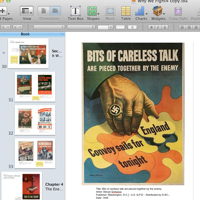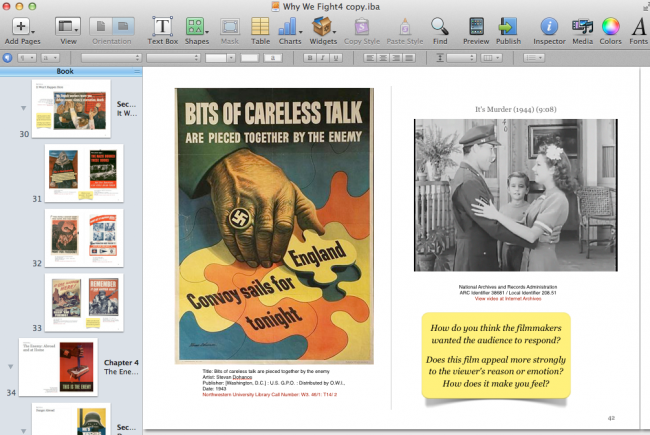My second podcast with Mark Hofer and David Carpenter for their series Ed Tech Co-Op was just posted. Go to Show 27: Peter Pappas and iBook Publishing (Dec 23, 2012) via Web | iTunes.
We focused on getting started with using iBooks Author (iBA) in the classroom. Here’s a synopsis of our discussion with some time markers to guide your listening.
We began with some comments on my iBook Why We Fight: WWII and the Art of Public Persuasion (screenshot above from iBook Author). (1:30) Mark noted how the book exemplified three key elements of universal design for learning – multiple representations of content, active learning strategies for students, and relevance for the learner. (5:30)
We discussed how an iBook can be designed to guide students in examining essential questions. (7:17) David noted content-curation advantages of teacher-produced iBooks over other learning management systems. (11:02) Then our discussion turned to iBA workflow specifics. (12:42) We discussed how to guide students in producing their own iBooks (17:30) and how student can find a more authentic audience beyond the classroom by sharing their book with their community and the world via iTunes. (19:32).
iBooks author projects are more than writing. They offer students the chance to create video, audio and visual content used in the iBook. (21:07) They also exemplify the best aspects of project-based learning and put a premium on preplanning and production-oriented decisions (25:40)
For tech specifics on using iBA see my collection of “how-to’s” – Publishing with iBooks Author
My first podcast with Mark and David: Reflections on Teaching Strategies That Work.




